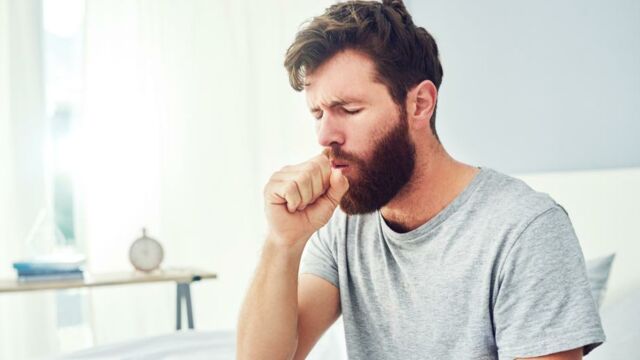Contamination, suspicious symptoms, treatments… Nowadays, there is lots of ‘rabble' going around about the coronavirus online and it’s difficult to know what to make of it all. So, we’ve tried to summarise the key points and what to do if you think you might be infected.
Discover our latest podcast
We're sure you’re aware of this by now, but a quick reminder: the coronavirus is transmitted via close contact with others. So make sure to keep about a meter of distance between yourself and those around you. It is also important, at this stage of the epidemic, to avoid making unnecessary journeys and areas with large crowds. Also, bear in mind that it can take around 10 to 14 days before symptoms start to appear after initial exposure.
What are these worrying symptoms?
Symptoms closely resemble those of a really bad flu or pneumonia: congestion, headaches, a bad cough, a pain in your throat, fever and generally feeling unwell.
Do you have these symptoms? Breathe, you’re not alone. Here is a list of things you now need to consider doing.
Take your temperature
People who think they have these symptoms and/or have travelled to an area where the virus is active within the last 14 days should definitely be keeping an eye on their temperature with a thermometer. If your temperature is worryingly high, don’t immediately rush to the emergency room where weaker, more vulnerable people are. Instead, do the following things first.
Take a test online
There are several questionnaires available online now that can help identify if someone could possibly be infected or not. These questionnaires allow internet users to find out what they could or should do to take care of themselves in the best way possible depending on the symptoms they have. How are these tests established? One of these questionnaires explains:
‘The questions are regularly updated and based on recommendations from the Ministry of Health.’
You could also visit Corona Check. This site has two tests available which are very quick and easy. One is for individuals and another for health professionals. Click here to take these tests that will take less than two minutes. They promise to provide you with the best advice on what to do depending on your answers to their questions.
There are now even apps available that you can download on your smartphone where you can track your symptoms and how they develop in real time.
Call a special number
There is a number you can call in the UK to talk to someone about your concerns. The NHS number 111 is currently, and obviously, under a lot of strain at the moment, but calling NHS 11 should be your first port of all. They also have a good online service you can use with their own questionnaire.
If they think you may have the virus, you will be subjected to a range of tests. If these tests come back positive for the coronavirus, there are then two possibilities. If you are stable, you will be sent home where you will have access to long-distance medical assistance should you need it. However, if doctors are concerned about your health, you will be admitted to a special unit where you will be better taken care of.
How to know when you are better
'Patients will need to undergo a second test to obtain negative results and know for sure whether they have been cured.’
As Dr. Agnès Ricard-Hibon, president of the Congress of the French Society of Emergency Medicine, explained to the French media.
Another possibility: if you have travelled to an area considered at risk, or been around people who have visited one of these ‘red zones’, you should call the NHS straight away. An expert will then be able to answer all your questions for free, 24 hours a day, 7 days a week.
In the meantime, make sure to follow the new measures put into place by the government surrounding this pandemic, avoid making unnecessary journeys and remember to regularly and thoroughly wash your hands.















